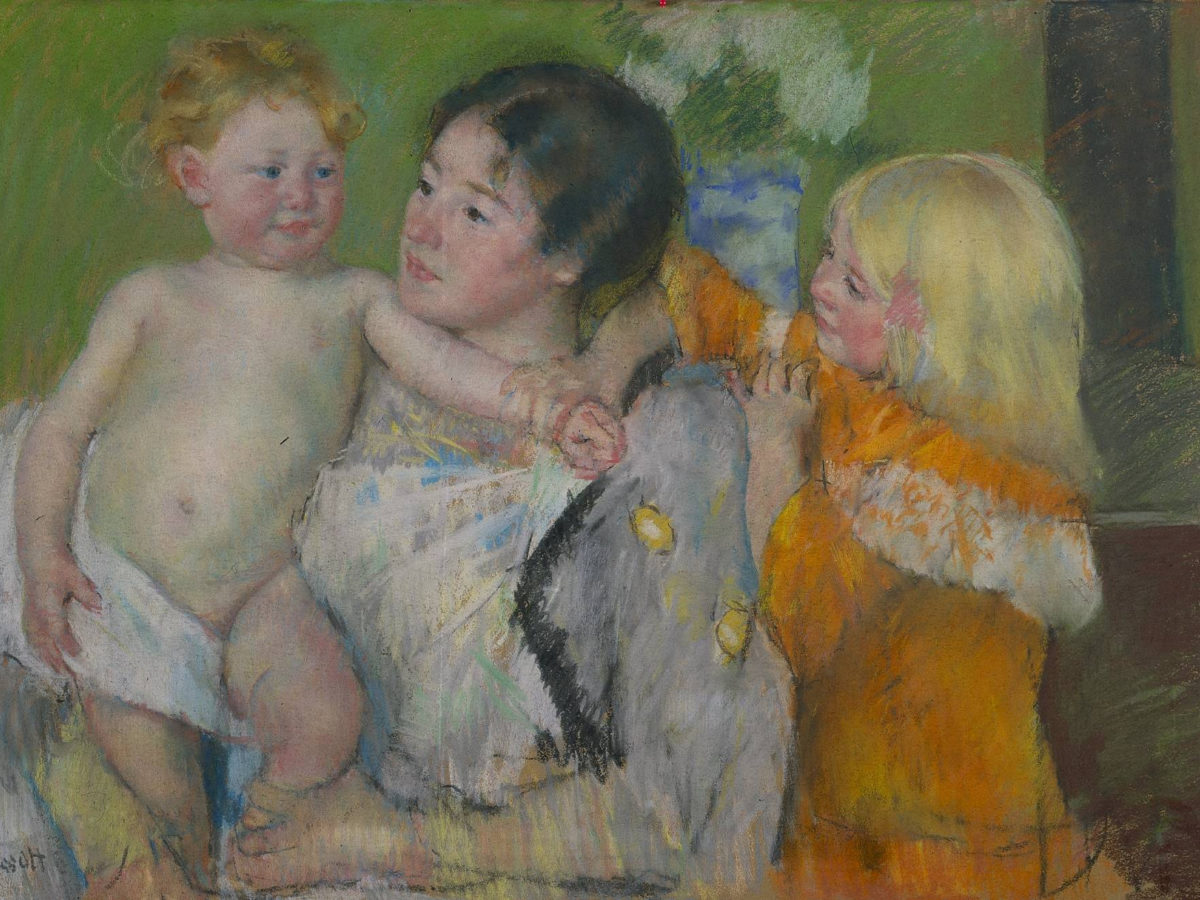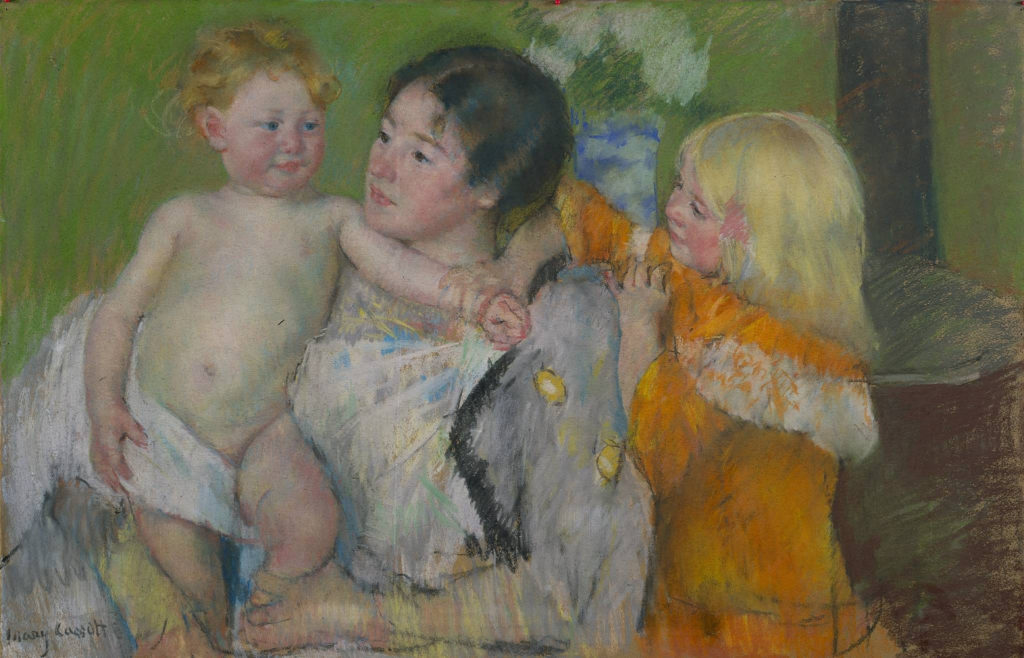But the second one is easier, right?


These words were uttered to me by a colleague who was shortly to become a father for the second time. His tone was joking, but I could see the panic in his eyes. He desperately wanted – no, needed – me to say yes.
Well, on the one hand…
The practicalities are certainly easier. Whereas the first time I put on a nappy it seemed like an impossible origami puzzle, when our second child came along, I barely paused to marvel nostalgically at how tiny the thing was before I’d whipped it on and done up the tags. Baths, sterilizers, bottle warmers, car seats, pushchairs – they were all familiar friends. The various institutions and their processes were familiar too, we knew the routine of a visit to the health centre, were on first-name terms with all the nursery assistants and could deliver our child with a bag complete with all necessities without having to think about it. Health centres, day care and schools were easier for our second daughter too, as she had already been there with her big sister, so it felt like home turf to her.
We were far more relaxed the second time round. Tests with our first daughter had conclusively proved that she was not made of glass. Whereas the first time round a rash would have had us ringing up the health centre as soon as it opened in the morning, now we were far more laconic. “She’s drinking fine, let’s see how she goes over the next few days. It’s probably just the fourth/fifth/sixth illness” (Note: these are genuine childhood illnesses). When it came time to start eating bread, I sat for ages each day with my first daughter, trying to coax small pieces down. With our second daughter, I offered the bread and if she didn’t eat it, well, that was that. Being more relaxed cut out a great deal of the work – and made our child more relaxed, in turn.
But, on the other hand…
Even in the same family, one child is not the same as the other. Tips and tricks that worked like a charm on our first child, completely failed with the second. Regularly swapping ends on the commode was enough to rid our first daughter of her preference for lying on one side, for our second, we had to move her bed to the other wall. An alarm about a possible hip deformity for our first daughter led to nothing, for our second daughter it meant a year in a hip brace.
The biggest difference, however, with the second child, is quite obvious. We already had a child. During my first pregnancy, I was completely caught up in the wonder of it all, attending both prenatal courses with my partner, and Mensendieck classes on my own. I was in top condition and full of energy right up to the last week before the birth. During my second pregnancy, I was coping with a toddler in the throes of a full-on bout of the ‘terrible twos’. Forget attending any courses, I was happy if I made it through work and could get my daughter fed and into bed without too many tantrums.
Months before my maternity leave, I was forced to work from home one day a week so that I could spend the saved journey time napping. My partner was also exhausted by the constant emotional clashes, so we started the newborn period with far fewer reserves than the first time round. Caring for a newborn is tough, but at least, with our first baby, when she slept, we could rest too. Now, we had an energetic little girl who wanted – and deserved – our attention, no matter how tired we were. I remember propping myself up on a cushion attempting to do a jigsaw puzzle with my two-year-old, and having enormous trouble getting my sleep-deprived brain to work out which of the 24 pieces went together. We couldn’t just centre our activities around the baby’s needs, as our older daughter also had her own rhythm that needed to be maintained – meals, naps, daycare, trips to the playground, bedtime.
Three weeks in, when Christmas came, we were looking forward to a few days of her going to creche while my partner and I could be at home with the baby together, for some much-needed peace. Of course, just as the holiday started, she was sent home with chicken pox… We looked back longingly at the time before the birth, which had seemed so hard then, but now seemed like a haven of ordered tranquility. When friends of ours, who already had two children, came to visit, they reassured us that things would get back to normal. “How long will that take?”, was my plaintive question.
Hang on a moment though. When attending a sales course, our teacher advised us that most customers ask about the price, while in reality, a product is never rejected because it is too expensive. We sat looking at him, open-mouthed at such a stupid comment. But then, he pointed out that it is the combination of the cost with the benefit that really matters. Two hundred thousand euros is a lot of money, but it’s a snip for your dream home. Five euros is a very small amount, but it’s a ridiculous price to have to pay for a piece of plastic tat, just because it has a popular cartoon character on it (as many parents will have experienced).
With a second child, you get all the joys you had with the first child – the first smile, the first words and steps, cuddles, giggles, astonishingly wise statements and silly little games. But you also get something much more, because when it comes to children, the whole is definitely more than the sum of the parts. There is no longer just a parent-child relationship, now you see two children growing up together and discovering each other. And that is a wonder to behold.
It started already when I was pregnant. Our older daughter was fascinated by the prospect of a brother/sister. She gave me food to eat ‘for the baby’, and regularly conducted examinations on me, including an ‘ultrasound’ with a pocket torch. Once the baby was born, she became a proud big sister, clutching her carefully on her lap, pushing the pushchair and bringing her toys. We have a wonderful photo of them, aged two years and four months respectively, lying together on a quilt. My older daughter is giggling with joy as her little sister reaches out to touch her arm. A few years later, they burst into the room together, one with a play skirt on her head as a veil, the other with another one round her face as a beard, to announce they were getting married to each other.
Now aged five and eight, they are firm friends. With casual familiarity, they call each other by the single syllables they have shortened each other’s names to. If the younger one is ill, then the older one sits beside her, reading. If the older one is ill, her little sister expresses her concern by climbing on top of her for a cuddle (slightly less well received). They come up with all sorts of amazing games, last week traipsing around the house dressed as a witch and knight, defending our house against invaders with an assortment of weapons from their pipe-cleaner utility belts. Together, they frequently transform corners of our house or garden into their own little huts, complete with letter boxes and warning signs. Sitting at the table in the evenings, they hold surprisingly involved discussions, from theology, to natural history, to details of Donald Duck comic strips.
Being two young ladies who know what they want, they also often clash. Our younger daughter is a master of manipulation, sidling up to her sister and murmuring provocatively, ‘I went on a school trip today. It was really great. I had an ice cream. You didn’t go’. As I see my older daughter start to explode, half of me is already ducking for cover and considering calling in the UN blue helmets to intervene, while the other half wants to sit back with a bowl of popcorn and enjoy a perfect display of psychological warfare. It’s always over quite quickly, and forgotten by the time they give each other a bedtime kiss. And they are already making plans to move in together when they are older.
Is the second child easier?
Yes.
And no.
But I wouldn’t have missed it for the world.